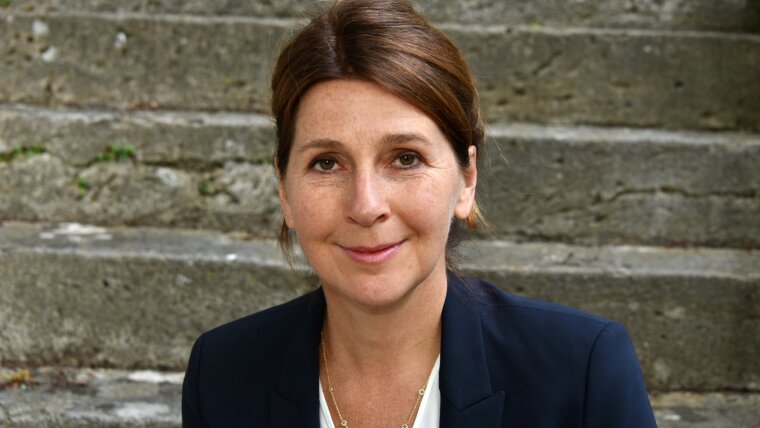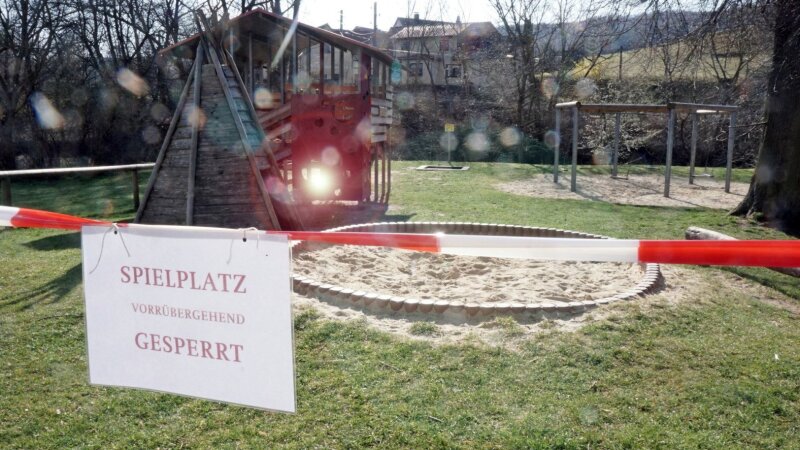
Dr Dickmann, you’re the chairwoman and spokesperson for the scientific advisory board that was established by the state government at the end of May. What are the tasks of this advisory board?
The advisory board is a multidisciplinary body of scientists. We analyse and understand the data available on the corona pandemic and provide our perspective that can be used for political decisions. On the one hand, we receive specific enquiries from politicians who want our opinion on certain issues. On the other hand, we develop our own agenda of relevant issues that we consider important to make politicians aware of decisions that are necessary from a scientific perspective. And we’re asked to examine and evaluate the overall pandemic management strategies to learn important lessons for a possible next pandemic.
The advisory board brings together twelve scientists from very different disciplines and research institutions. How do you work together in practical terms?
As we’re still in a sort of discovery phase, we meet once a week; we used video conferencing at first, we met in person at the Erfurt State Chancellery and have now adopted a hybrid approach with remote and on-site meetings. We discuss the issues at hand and look for common ground. In between meetings, we evaluate scientific developments that might be relevant to the current political situation, make comments on political proposals, develop evaluation documents and impulse papers. We have a heavy workload and tight deadlines; our involvement with the advisory board is voluntary, which means we still do our »normal« research jobs at the same time.
We see ourselves as a kind of »owl committee«, because an owl can turn its head 180 degrees in both directions – and that’s exactly how we work: we look at scientific findings in all directions and evaluate them according to their degree of controversy. That’s how we convey the certainty or contentiousness of various scientific topics and issues to political actors. The more political decisions differ from scientific assessments, the more they have to be justified to the general public.
What is the scientific advisory board working on at the moment?
We started our work at the beginning of June; we’re still trying to get an overview of the situation. Some of the key issues that are already emerging include the possibility of a second wave, the reorganization of daily public life, the problem of hotspots and appropriate interventions.
Another important issue in Thuringia is the reopening of schools and the reorganization of the school day after the summer holidays. There’s a political and popular desire for the next academic year to be as normal as possible. But if we take a look at the current situation in other countries, such as South Korea or Israel, we can see their experience of reopening schools hasn’t been too positive, as there was a significant increase in the number of cases a few weeks afterwards and some of the schools had to be closed again. Of course, we want to avoid that happening in Thuringia.
How can that be avoided and how can we return to life as normal in Thuringia and the rest of Germany as soon as possible?
There is no patent remedy for this. We have to react flexibly, identify changes in the infection process at an early stage and adapt to them quickly. We need an early warning system to measure infection rates in schools and obtain information about the current spread of the virus and the number of asymptomatic infections.
And we also need clear intervention strategies, so that we know what to do if a certain number of cases is exceeded at a school or if there is a certain number of infections in a city or district. We need to develop specific criteria and measures that are not only useful from the perspective of infection control, but can also be supported by pedagogic, by economyand by society as a whole. We do not yet have them. We urgently need to get to work on this. And we must communicate better.
In what way?
Risk communication plays a crucial role in situations like this. During the first wave of the pandemic, serious political decisions were made that were new for the vast majority of people. And even now as we talk about potentially easing those measures, there are still many restrictions and regulations that will only be successful if everyone adheres to them – and that will only work if the general public understand why the decisions have been made.
This is particularly true when, as is currently the case in some hotspots, we have to intervene very quickly. The population has to be prepared for such eventualities, and that’s exactly why risk communication is important to highlight the criteria behind certain decisions. After all, our intervention measures will be useless without the support of the people.
Does something have to change at the schools themselves?
Yes. In the short term, it’s obviously important for schools to introduce a good hygiene concept that reflects the local situation and offers adequate protection against infection. In the medium and long term, schools also need »pandemic strategies«, such as room layouts: It may no longer be feasible to teach 32 children in a small classroom, so we’ll have to think about the structure of our future communities. How can we learn and live together? How can we maintain our social groups while keeping the necessary distance?
We also need new educational concepts with a mixture of classroom and distance learning. That’s where digitalization is very important, as we won’t be able to achieve this without establishing a new culture of networked knowledge transfer and digital education.
As a doctor and public health expert, you’ve already got a lot of experience in dealing with epidemics and pandemics. How do you think we’ve managed the pandemic so far?
In Germany, we were very quick to develop diagnostic tools for the novel coronavirus, allowing us to detect the first cases of COVID-19 as early as January. Unlike in other countries before us, we weren’t suddenly confronted with a huge number of patients suffering from an unknown illness.
However, it took a while before people realized just how dangerous this disease actually is. There were comparisons with SARS, which is much more deadly, and seasonal flu, which is just as contagious. It wasn’t until March that important and far-reaching decisions were made, as we finally realized we were dealing with more than just the flu and needed a stricter approach. It was an incredibly difficult decision with enormous economic and social ramifications – I don’t envy our policy-makers – but it was the right decision! And it was about time.
How do you assess the measures taken here compared to those in other countries?
Overall, I think we’re being very reasonable and wise here in Germany. Our measures, such as school closures and social distancing, have proven to be effective. We did not need curfews like in France, for example, but we’ve introduced reasonable social distancing rules.
Of course, some people say we could’ve stocked up on protective masks and clothing and could’ve been generally better prepared for a pandemic. That’s obviously true but pointless in hindsight. I found the decisions courageous and correct. I have a lot of respect for that.
How do you currently see the situation and where do we go from here?
The shutdown of public life in March was extremely difficult, but now it’s even harder to decide when and how to start things up again. And despite our prudent and wise decisions, that’s where we see once again what’s missing: good risk communication. We are currently seeing very clearly how tired society is of the pandemic. Everybody is fed up with corona. We’d love to get rid of the pandemic for good. We just want a vaccine. But we don’t know whether we’ll be able to develop a vaccine in the foreseeable future – not even with lots of money. Look at HIV: We've been wanting a vaccine against it for decades, but there isn't one yet.
Of course, we’ve all got high hopes that the current research and studies might lead to a corona vaccine. But we’ll also have to consider the possibility that we’ll go without a vaccine for quite some time. And that’s the basis on which we’ll have to develop sustainable forms of social life, learning and community. We have to think about how to return to »normal« despite the pandemic and how that normality might look.
Interview: Ute Schönfelder
Biography
Dr Petra Dickmann combines an extraordinary range of subjects in her scientific expertise. She’s a researcher and medical doctor (with “habilitation”) and a communication and political scientist. She has over 15 years of experience in managing pandemics around the world and has worked with the WHO, the International Red Cross and various governments (e.g. G7), dealing with bird flu H5N1in Asia (2013) and the Ebola outbreak in West Africa (2014). After spending eight years in England, where she conducted research at the London School of Economics and Political Sciences, she moved to the Anaesthesiology and Intensive Care unit at Jena University Hospital in 2016, where she is developing a Public Health unit and heading the working group on »Risk Communication in Public Health and Health Security«.
Playgrounds around the country were closed for weeks. Various ways to restart public life in the pandemic are being suggested by the Scientific Advisory Board of the Thuringian State Government.
Image: Anne Günther (University of Jena)Members of the Scientific Advisory Board of the Thuringian State Government for the Corona Pandemic:
- Dr Petra Dickmann, Anaesthesiology and Intensive Care, Jena University Hospital (Chair)
- Prof. Cornelia Betsch, Department of Media and Communication Science, University of Erfurt
- Prof. Karlheinz Brandenburg, Institute for Media and Mobile Communications, Technical University of Ilmenau
- Prof. Nicole Harth, Chair of Social Psychology, University of Applied Sciences Jena
- Prof. Sebastian Henn, Chair of Economic Geography, Friedrich Schiller University Jena
- Prof. Nikolaus Knoepffler, Chair of Applied Ethics, Friedrich Schiller University Jena
- Prof. Barbara Lochner, Chair of Childhood Education, University of Applied Sciences Erfurt
- Prof. Mathias Pletz, Institute of Infectious Diseases and Infection Control, Jena University Hospital
- Prof. Benno Stein, Chair of Content Management and Media, Bauhaus University of Weimar
- Prof. Silke Übelmesser, Chair of Economics / Finance, Friedrich Schiller University Jena
- Dr Klaus-Dieter von der Weiden, Judge at the Federal Administrative Court / State Constitutional Court
- Prof. Viktor Wesselak, Chair of Regenerative Energy Systems, Nordhausen University of Applied Sciences
